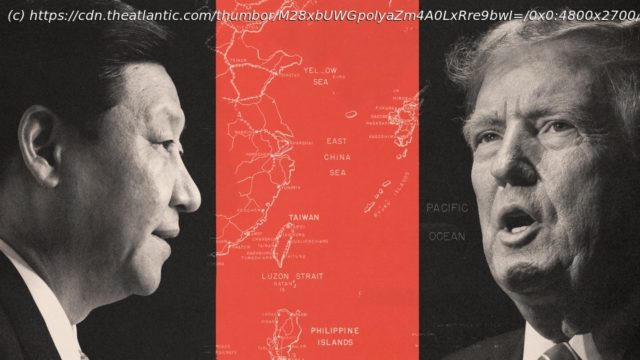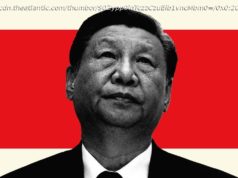He’s all but said he wouldn’t defend Taiwan from a Chinese invasion. What else would he give up to Beijing?
The comment typifies Trump’s view of foreign policy as a business transaction, and likely appeals to a political base weary of Washington’s superpower responsibilities. But although such talk may be good domestic politics, it makes for atrocious geopolitical strategy. The Chinese dictator Xi Jinping is listening for clues about American intentions in Asia, and factoring them into his calculations for promoting Chinese influence. Trump’s Taiwan remarks play right into his hands by undermining the most fundamental, yet fragile, source of U.S. global power: confidence in American leadership.
At the moment, conflict over Taiwan, which the Communist regime in Beijing claims as an integral part of China, hardly seems imminent. The CIA believes that Xi has told his military brass to be ready to invade Taiwan by 2027, but this doesn’t mean he will. Xi told President Joe Biden in a November meeting that he had no plans to do so (though it would be foolhardy to take the Chinese leader at his word). China would run tremendous risks with a grab for the island. If the campaign faltered, or sparked a costly regional war, the price could be Xi’s political career and perhaps even the future of Communist rule over China.
Washington doesn’t have a binding commitment to defend Taiwan. Although Biden has on several occasions said that the U.S. would come to Taiwan’s defense, Washington’s formal position has been kept purposely ambiguous. Trump’s comment has just made it more so.
And that’s risky business. Xi has turned to promoting nationalist causes to build support for his dictatorship amid economic malaise and heavier repression. This has elevated the importance of what the Communists call “reunification” with Taiwan in Xi’s domestic political messaging. If he is indeed considering military action to make that happen, he will base that potentially fateful decision, in part, on whether he believes that the U.






